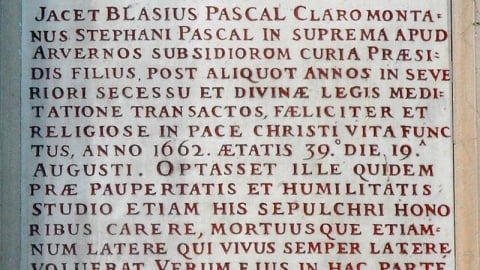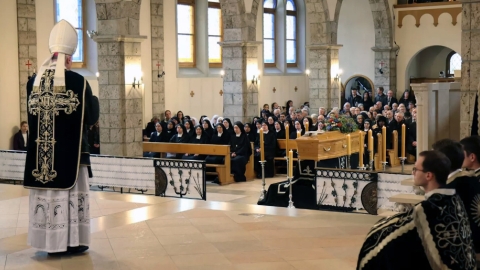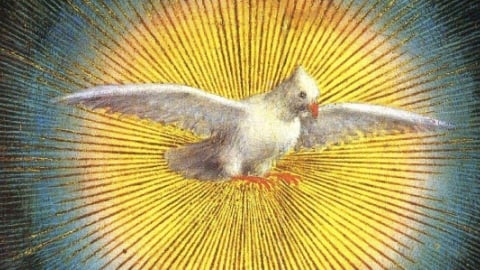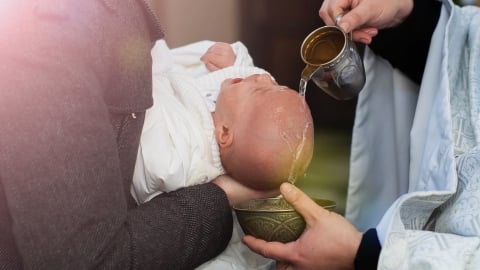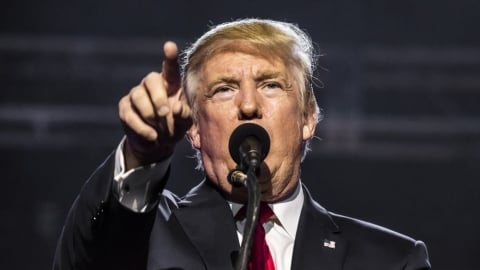St. Joseph: Protector of Universal Church

In our modern age of crisis, St. Joseph is an ideal heavenly patron to invoke for assistance—as demonstrated by popes themselves!
To honor the Feast of St. Joseph, Spouse of the Virgin Mary (March 19th), we offer some thoughts about the Universal Protector of Holy Mother Church. On March 19, 2013, the Society of St. Pius X consecrated itself to St. Joseph officially using this formula.
The Gospels relate several incidents concerning St. Joseph that can cause us to consider him the "patron saint of crises"—as exemplified most notably when he was angelically informed of a "state of emergency" and the necessity to act swiftly in order to safeguard the life of the Divine Infant.
Thus it was only natural that the popes should turn to St. Joseph for heavenly protection in the midst of the modern crisis (starting in the late 19th century) that gravely afflicted civil society and the Catholic Church.
We feature below some texts from the Holy See that illustrate the strong confidence the papacy traditionally placed in the hands of the carpenter whom Almighty God saw fit to hold and protect His Only Begotten Son.
Papal invocations of St. Joseph
Here are some prayers composed by popes in honor of St. Joseph:
- Most powerful patriarch St. Joseph (Leo XIII)
- To thee, O blessed Joseph (Leo XIII)
- Glorious St. Joseph (St. Pius X)
Proclamation of St. Joseph, Patron of the Universal Church
The proclamation of the solemnity of St. Joseph as Patron of the Universal Church was made by Pope Pius IX during very troubled times, as noted in the decree itself.
At least three petitions were submitted to Pope Pius IX requesting that St. Joseph be proclaimed Patron of the Universal Church. The first was signed by 118 bishops. The second petition was signed by 43 superiors general of various religious orders. The third petition bore 255 signatures, 38 cardinals among them, including the future Pope Leo XIII.
Pope Pius IX, in answer to the requests and prayers of all the prelates and faithful all over the world and of the petition of the Vatican Ecumenical Synod, declared St. Joseph "Patron of the Church" by the decree Quemadmodum Deus of the Sacred Congregation of Rites, published on December 8, 1870, the feast of the Immaculate Conception of his spouse.
Quemadmodum Deus
Decree of Pius IX declaring St. Joseph, Patron of the Universal Church
As God appointed Joseph, son of the Patriarch Jacob, over all the land of Egypt to store up corn for the people, so, when the fullness of time was come, and He was about to send to earth His only-begotten Son, the Savior of the world, He chose another Joseph, of whom the first had been the type, and He made him Lord and Ruler of His household and possessions, the Guardian of His greatest treasures. And Joseph espoused the Immaculate Virgin Mary, of whom was born by the Holy Ghost, Jesus Christ our Lord, who deigned to be reputed before men as the Son of Joseph, and was subject to him. And Him whom so many kings and prophets desired to see, Joseph not only saw, but abode with, and embraced with paternal affection, and kissed, yea, and most sedulously nourished, even Him whom the faithful should receive as the Bread come down from Heaven, that they might obtain eternal life.
On account of this sublime dignity which God conferred on His most faithful Servant, the Church has always most highly honored and lauded the Most Blessed Joseph next after his spouse, the Virgin Mother of God, and has implored his intercession in all her great necessities. And now that in this most sorrowful time the Church herself is beset by enemies on every side and oppressed by heavy calamities, so that impious men imagine that the gates of hell are at length prevailing against her, the Venerable Prelates of the whole Catholic world have presented to the Sovereign Pontiff their own petitions and those of the faithful confided to their care, praying that he would vouchsafe to constitute St. Joseph Patron of the Catholic Church.
Moreover, when at the Sacred Ecumenical Council of the Vatican they renewed still more fervently this their petition and prayer, Our Most Holy Lord, Pius IX, Pope, moved thereto by recent deplorable events, was pleased to comply with the desires of the Prelates, and to commit to the most powerful patronage of the Holy Patriarch Joseph both himself and all the faithful and solemnly declared him Patron of the Catholic Church, and commanded his festival, occurring on the 19th of March, to be celebrated as a double of the first class, but without an octave on the account of Lent.
Further, he ordained that on this day, sacred to the Immaculate Virgin Mother of God and Spouse of the Most Chaste Joseph, a declaration to that effect should by this present decree of the Sacred Congregation of Rites be published. All things to the contrary notwithstanding.
On the 8th of December 1870.
St. Joseph in the Roman Canon
We would be remiss to omit mention of the great efforts made to have St. Joseph's name inserted into the Roman Canon, that most venerable of prayers offered during the Holy Sacrifice of the Mass.
The campaign to have the name of the Blessed Virgin Mary's chaste Spouse added to the Canon began in 1815 with a petition to the Sacred Congregation of Rites. This initial request was subsequently repeated during the successive decades by several worldwide petitions, which included the signatures of the future Popes Leo XIII and St. Pius X (when they were cardinals).
During the 20th century especially, a group of Josephine studies were commission by the Oratory of St. Joseph located in Montreal, Canada (built through the devotion of the holy Br. Andre), and in 1962, another petition to have the Foster Father of Christ's name entered into the Canon was made to the Holy See—occurring again during the Second Vatican Council's discussion on the liturgy.
This time on November 13, 1962, Pope John XXIII acceded to the request and announced motu proprio that the name of St. Joseph would finally be entered into the Communicantes prayer of the Roman Canon as thus:
In communion with and honoring the memory, first of the glorious, ever Virgin Mary, Mother of our God and Lord Jesus Christ: as also of blessed Joseph, her Spouse..." (English text from the Roman Catholic Daily Missal)
There was jubilancy amongst the devotees of St. Joseph who had long desired to see him exalted in the highest possible manner within the prayers of the sacred liturgy, though various liberals, such as Fr. Yves Congar, lamented the "devotionalism" of this papal act, considering it "regrettable or retrograde."
In addition to the relief that justice was finally rendered liturgically to who Scripture calls a "just man", in hindsight of the post-conciliar crisis (particularly of the liturgy) we can also perhaps see the magnificent providence of God ever at work. For the motu proprio that ordered the insertion of St. Joseph's name into the Roman Canon came just before the final printing of the 1962 Missale Romanum was completed—thus ensuring the addition of the Church's Universal Protector to the missal of the Mass of All Time, and when "honoring his memory" was needed most by Catholics striving to maintain the purity of the Faith!
